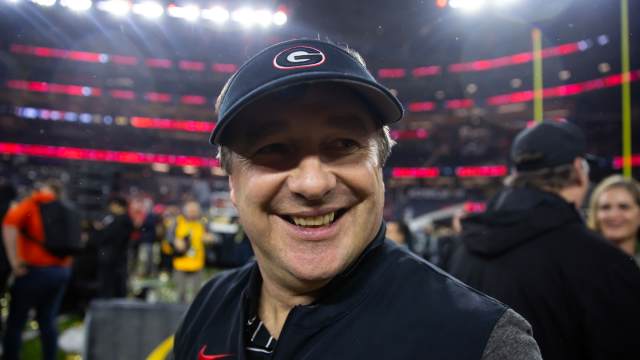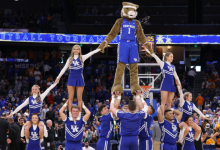Brian Kelly faces a blunt reality check as LSU’s hype grows, challenging his ability to meet rising expectations.

When Brian Kelly made the move from Notre Dame to Louisiana State University (LSU), it sent shockwaves through the college football world. A coach known for revitalizing programs and leading Notre Dame to national prominence, Kelly arrived in Baton Rouge with high expectations and an eager fanbase hungry for a return to glory. However, amid the growing hype surrounding LSU, Kelly has been dealt a blunt reality check—one that underscores the challenges ahead and tempers the soaring optimism.
This article delves into the complexities Brian Kelly faces at LSU, the pressures accompanying the hype, and what this means for the Tigers’ future.
The Context: Brian Kelly’s Arrival at LSU
Brian Kelly’s departure from Notre Dame at the end of the 2021 season surprised many but also invigorated LSU’s program. LSU, a perennial powerhouse and the 2019 national champions under Ed Orgeron, had recently experienced a downturn with coaching changes and inconsistent performances. Kelly was viewed as a steady hand capable of restoring order and success.
His track record is impressive: over 15 years as a head coach, numerous playoff appearances, and a reputation for building disciplined, competitive teams. LSU fans embraced the arrival of Kelly with hope and anticipation, expecting a swift turnaround and sustained excellence.
The Growing Hype Around LSU
LSU’s brand remains one of the most iconic in college football. The program boasts multiple national championships, a passionate fanbase, and a rich tradition of producing NFL talent. In recent years, LSU’s recruitment and performance had slipped, but with Kelly at the helm, expectations skyrocketed.
Recruiting Success
Kelly’s first recruiting classes at LSU demonstrated his ability to attract high-level talent. The Tigers have secured commitments from top prospects, fueling belief that the roster could rapidly improve.
Media and Fan Expectations
National media outlets and LSU supporters alike began to project LSU as a favorite to reclaim the Southeastern Conference (SEC) title and compete for another national championship. The hype surrounding Kelly’s early tenure grew louder with every promising development.
High-Stakes Schedule
LSU’s challenging SEC schedule, featuring powerhouses like Alabama, Georgia, and Florida, adds intrigue to the hype. Analysts debated whether Kelly’s coaching acumen and recruiting could overcome the formidable competition.
The Reality Check: Challenges Facing Brian Kelly at LSU
Despite the excitement, Brian Kelly has encountered a sobering reality that tempers the hype.
1. SEC Competition Intensity
The SEC is widely regarded as the most competitive conference in college football. Unlike Notre Dame’s independent status, where scheduling flexibility exists, LSU faces a gauntlet of elite programs year after year.
Teams like Georgia and Alabama have set the bar extremely high, boasting not just elite talent but also well-established coaching staffs and championship pedigrees. Kelly must elevate LSU to compete consistently at that level—a monumental challenge.
2. Roster Transition and Depth Issues
When Kelly took over, LSU’s roster required significant rebuilding. The team lost key players to graduation, transfers, and the NFL Draft. While recruiting efforts are promising, the current depth chart still lacks the experience and consistency necessary to dominate the SEC immediately.
Rebuilding an SEC roster is a multi-year process, and Kelly is navigating the difficult middle ground of developing young talent while competing in a brutal conference.
3. Pressure and Expectations Management
The LSU fanbase is famously passionate and demanding. Early-season losses or struggles inevitably lead to criticism and pressure on coaching staff. Kelly has had to manage not only on-field challenges but also the emotional rollercoaster of high expectations.
This pressure test’s Kelly’s leadership and ability to maintain team focus amid external distractions.
4. Adjusting to Baton Rouge’s Culture and Environment
While Kelly was successful at Notre Dame, LSU presents a different cultural and environmental challenge. The South’s unique recruiting battles, fan engagement, and media scrutiny require adjustment. Kelly has openly acknowledged the steep learning curve involved in embracing LSU’s distinct identity.
Brian Kelly’s Response and Adaptation
Despite these challenges, Brian Kelly has shown resilience and adaptability.
- Emphasizing Player Development: Kelly has prioritized strength and conditioning programs, film study, and personalized coaching to develop LSU’s young roster.
- Building a Cohesive Culture: Kelly has worked to unify players, coaches, and staff around a shared vision emphasizing discipline, accountability, and teamwork.
- Recruiting Adjustments: Leveraging LSU’s recruiting advantages in Louisiana and the Southeast, Kelly has adapted his approach to compete for local and national talent.
- Strategic Game Planning: Kelly’s game plans have reflected flexibility and innovation, attempting to maximize the strengths of his personnel against top-tier opponents.
Early Season Performance and What It Reveals
LSU’s performance in the early games of Kelly’s tenure offers a mixed picture—moments of promise coupled with setbacks.
- Competitive Games: LSU has shown flashes of brilliance against ranked opponents, indicating the team’s potential.
- Close Losses: Narrow defeats highlight areas needing improvement, such as situational execution and depth management.
- Injuries and Adjustments: Like many programs, LSU has faced injuries that test the coaching staff’s ability to adapt mid-season.
These performances reinforce the reality that rebuilding a powerhouse is rarely linear; progress often includes growing pains.
The Road Ahead: What’s Next for Brian Kelly and LSU?
Brian Kelly’s journey at LSU is just beginning. The blunt reality check does not diminish the program’s potential but rather sets a realistic foundation for future growth.
Building Sustainable Success
Kelly’s focus remains on establishing a sustainable model for success—a foundation of strong recruiting, player development, and culture. Long-term success in the SEC requires depth, adaptability, and continuous improvement.
Navigating the Recruiting Wars
The next recruiting cycles will be crucial. Kelly must continue to outmaneuver rival SEC programs and national powers for top talent, particularly at key positions such as quarterback, offensive line, and defensive playmakers.
Patience and Support from Stakeholders
Patience from fans, boosters, and the university administration will be essential. Kelly’s history suggests that with time and support, he can rebuild LSU into a contender.
Adapting to Emerging College Football Trends
As college football evolves—with changes in transfer portal dynamics, NIL (Name, Image, Likeness) rules, and offensive innovations—Kelly will need to remain flexible and forward-thinking to keep LSU competitive.
Brian Kelly’s arrival at LSU sparked widespread enthusiasm, fueled by his successful track record and LSU’s rich football tradition. However, the blunt reality check reminds all stakeholders that rebuilding an elite program in the SEC is a challenging and multi-faceted endeavor.
While the hype is justified by potential and past achievements, Kelly faces significant hurdles, including stiff conference competition, roster rebuilding, cultural adaptation, and immense pressure.
Ultimately, success at LSU under Brian Kelly will require patience, resilience, strategic recruiting, and cultural unity. For now, the growing hype must be balanced with realistic expectations as Kelly and the Tigers navigate a path back to college football’s summit.









